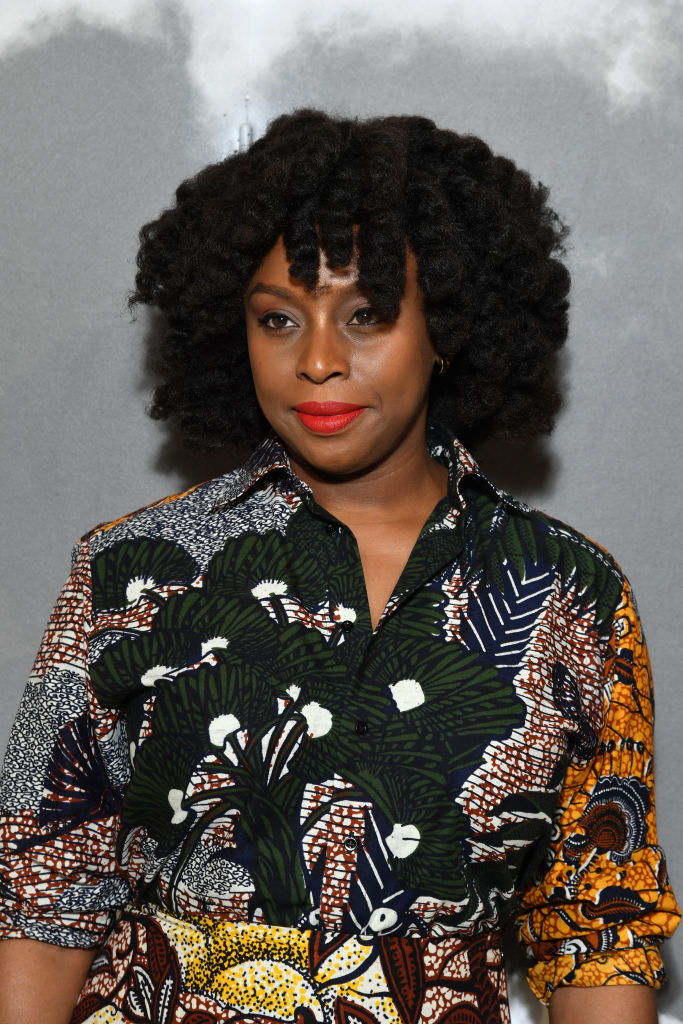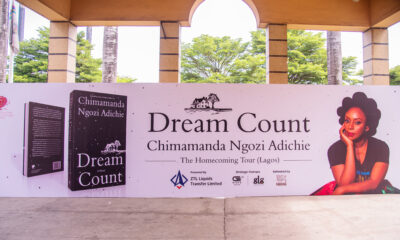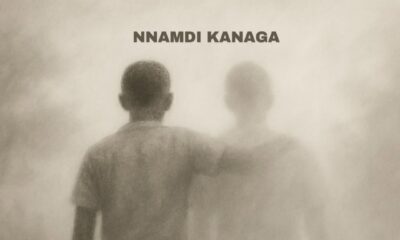Scoop
These are the Books on Chimamanda Ngozi Adichie’s Nightstand (& the Writers She’d Love to Host to a Dinner Party)

PARIS, FRANCE – JULY 01: Chimamanda Adichie attends the Christian Dior Haute Couture Fall/Winter 2019 2020 show as part of Paris Fashion Week on July 01, 2019 in Paris, France. (Photo by Pascal Le Segretain/Getty Images for Dior)
As a writer, especially an award-winning writer, it is expected of you to have read tons of books. Books that inspire you to write more books, books that make you tear up, smile, give you a deeper meaning of a situation, books that help you understand some cultural backgrounds and many other ways, a literary text can speak different languages and different meanings.
That is exactly what Chimamanda Ngozi Adichie is sharing in her recent interview with the New York Times.
The award-winning writer is letting us in her world of books, giving us all the deets on the books on her nightstand, the last great book she read, classic novels she read for the first time and books she would love to see turned into a movie or TV show.
Read the excerpts from the interview:
What books are on your nightstand?
“One Day I Will Write About This Place,” by the late Binyavanga Wainaina, a great prose stylist and one of my closest friends in the world, is kept always on my bedside because I miss him desperately.
Also: “On the Courthouse Lawn,” by Sherrilyn A. Ifill. “What You Have Heard Is True,” by Carolyn Forché. “The Body Papers,” by Grace Talusan. “House of Stone,” by Novuyo Rosa Tshuma. “The Moment of Lift,” by Melinda Gates. “Some of My Best Friends,” by Emily Bernard. “The Ethnic Cleansing of Palestine,” by Ilan Pappé. “Trade and Politics in the Niger Delta,” by Kenneth Dike. “The Go-Between,” by L. P. Hartley. “The Penguin Book of Japanese Short Stories.” “The Odd Woman and the City,” by Vivian Gornick.
What’s the last great book you read?
Isabel Wilkerson’s “The Warmth of Other Suns.” “Magisterial” can seem a little portentous but it really is the best word to describe it.
And “The Joys of Motherhood,” by Buchi Emecheta, which I recently reread, and was struck by its quiet power and accomplishment.
Are there any classic novels that you only recently read for the first time?
James Salter’s “Light Years,” a modern classic that I loved.
Can a great book be badly written? What other criteria can overcome bad prose?
I think of this quote from Léopold Sédar Senghor: “I have always taken care to put an idea or emotion behind my words. I have made it a habit to be suspicious of the mere music of words.” And while I don’t fully agree, as I do like to read literature that is all language, I think a great book can be badly written if its content is of such power that the bad writing pales in comparison. Many accounts of precolonial Africa are not necessarily paragons of style but their greatness is in the importance of what they document. I like the music of words but I like, more so, the meaning of words.
Describe your ideal reading experience (when, where, what, how).
I love to read in bed, curled up and comfortable, usually early in the morning or late at night, with quiet in the air and my iPad or a book propped on a pillow.
You’re organizing a literary dinner party. Which three writers, dead or alive, do you invite?
Ama Ata Aidoo, Mary McCarthy and Dambudzo Marechera.
Visit the New York Times to read more.





















